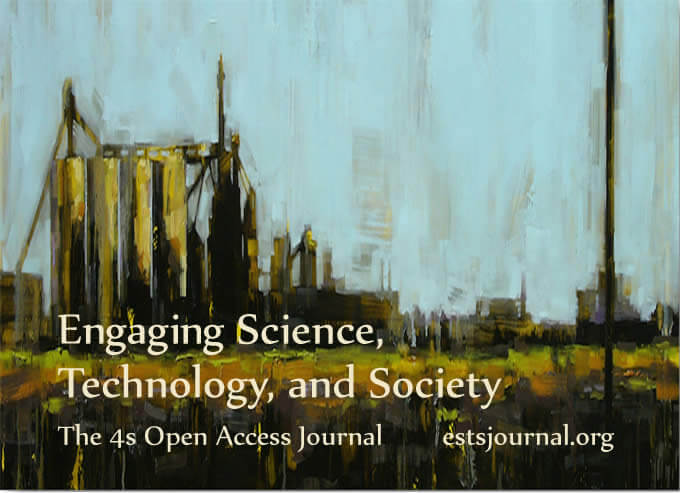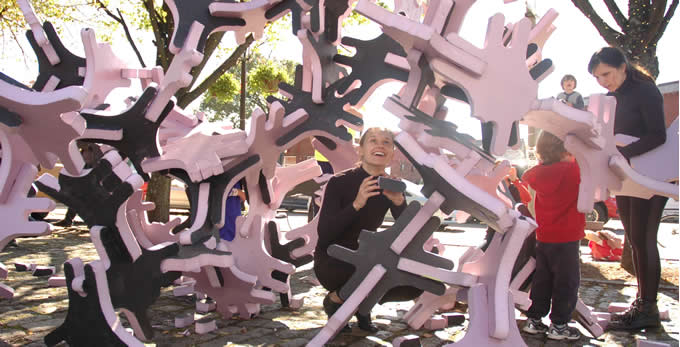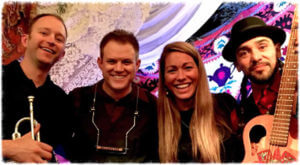
Denver, Colorado, 11-14 November
Sheraton Downtown
Join 4S for this milestone, 40th anniversay meeting
View a photo album from the Denver meeting!
Program
An interactive online meeting program is now available. You can log in and begin to plan your personal agenda, which can be saved for reference when you are on site.
Alternatively, you can download the Complete Print Program PDF and/or the Program with Abstracts (275pp PDF).
Please note that the online program is the most authoritative and up to date.
Program Highlights
Download the Program Highlights PDF with speaker bios and prize presentation summaries, as well as Making & Doing presentation summaries.
Wed. 6:00 to 7:30: Presidential Plenary
Eight scholars reflect critically on issues 4S members face in the formation and ecologies of STS practitioners, examining the consequences of STS pedagogies, curricular designs, and learning practices for learners who may not seek the Ph.D. or career identities as researchers.
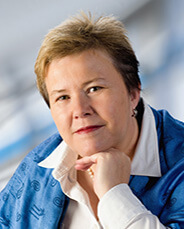
Ulrike Felt (U Vienna, Austria)
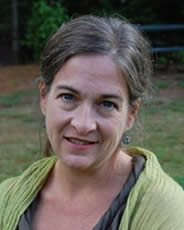
Kim Fortun (Rensselaer, USA)
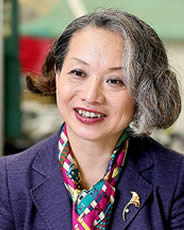
Yuko Fujigaki (U Tokyo, Japan)
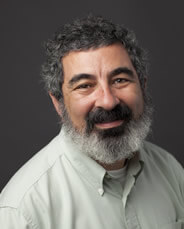
Bruce Lewenstein (Cornell U, USA)
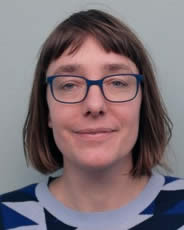
Noortje Marres (Goldsmiths U London/Warwick U)
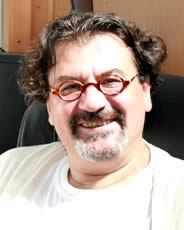
Hernán Thomas (U Nacional de Quilmes/CONICET, Argentina)
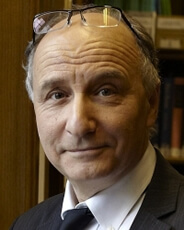
John Willinsky (Stanford U, USA)
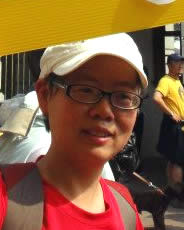
Chia-Ling Wu (National Taiwan U, Taiwan)
Wed. 7:30 – 9:30 pm: 4S Welcome Reception and Celebration of the new 4S journal, Engaging Science, Technology, and Society
Thurs. Noon to 4:00: Making & Doing Sessions
The STS Making and Doing Program aims at encouraging 4S members to share scholarly practices of participation, engagement, and intervention in their fields of study. It highlights scholarly practices for producing and expressing STS knowledge and expertise that extend beyond the academic paper or book. By increasing the extent to which 4S members learn from one another about practices they have developed and enacted, the initiative seeks to improve the effectiveness and influence of STS scholarship beyond the field and/or to expand the modes of STS knowledge production.
View presentation summaries here.
Fri. 6:00 to 7:30: Prize Plenary
Honoring the winners of the 2015 4S prizes.
Fri. 7:30 to 11:00: Banquet celebrating 4S’ 40th Annual Meeting
Featuring special guests and surprises, plus French ‘Nilla and the Decaf Muchachos
Conference Registration
Registration is now open at the new 4S Members portal. It is not to late to edit your registration to add a banquet ticket.
If you have not yet logged in to the new members site but have done business with 4S in the past few years, please use the Forgot Password function to retrieve your user name and password. (Note the password sent by email expires within 24 hours. The reset screen will show your user name, which is normally your first and last names, with no spaces. After logging in, you can change your user name to be your email address so you don’t have to retain that bit of information.)
Please also note: Having submitted an abstract does not mean you have an account with the members site, as it is not connected to the program database.
Registration Fees
| Student and Non-OECD | Professional | ||
|---|---|---|---|
| Member | Early | $170 | $270 |
| Regular | $270 | $370 | |
| Non-member | Early | $270 | $370 |
| Regular | $370 | $470 |
Upon logging in, the site will offer members the discounted rates. If your membership has expired, click Membership on the main menu and then follow the Upgrade your membership link. (Ignore the Your membership is current and does not expire language. It is referring to your guest membership to the web site.)
Cancellation Policy
After August 15, cancellations will be accepted with a refund of 50%. Any cancellations after September 15 will not receive a refund.
Hotel Information
The meeting takes place at the Sheraton Denver Downtown Hotel, 1550 Court Place. Denver, CO 80202. To book a room at the meeting rate of $139, visit https://www.starwoodmeeting.com/Book/SSSS or phone 888-627-8405 and reference 4S or Society for Social Studies of Science.
Exhibitors
The 4S is the oldest and largest scholarly association devoted to studying science, technology and society. The annual meeting attracts over 1,000 scholars. Many attendees look forward to the book exhibit for finding new books for class, for their research, and for staying current in the field. Visit the Exhibitors page for information on how to participate.
Mentorship Program
The Mentorship Program has become a popular part of the 4S conference. The goal of the program is to exchange ideas with junior scholars and support their career development. A mentoring relationship assumes a minimum of one conversation at the 4S conference. It is hoped that mentoring relationships will also continue with at least two follow-up phone calls or emails during the following 12 months. We will match new scholars with more experienced scholars and make an effort to assign mentors outside of one’s university. We hope that the mentoring project will allow new scholars to feel more at home in the STS community.
Visit the Mentorship Program registration page for more information and to sign up.
Childcare
Childcare for meeting attendees is available through The Amelia Agency. Reserve in advance at rachel.ameliaagency@gmail.com, or (303) 255-4928.
Travel Support for Students
Travel grant applications for 2015 have closed. 4S administers a travel fund to support graduate student participation in its annual meetings. In addition to the base funding, a special fund was created from proceeds from the 2010 meeting..
Important Dates
Monday, December 15, 2014: Submission opens for open panels
Sunday, January 18, 2015: Submission closes for open panels
Wednesday, Feb. 4, 2015: Submission opens
Sunday, March 29, 2015: Deadline for submissions of individual papers, session proposals and movies/videos.
Sunday, May 24, 2015: Acceptance notification.
May 25 – August 9, 2015: Early registration.
September 1, 2015: All presenters must register to be included in the program. For papers with more than one author, one presenter must register to be included in the final program.
September 13: Program posted
Call for Submissions
(Closed March 29)
The Society for Social Studies of Science (4S) invites submissions for its 2015 conference in Denver, Colorado, November 11-14. There is no predetermined theme for the 4S conference. Individual abstracts and proposals for sessions should emphasize how they will make original and timely contributions to any theme relevant to science and technology studies (STS). We welcome papers, session proposals, events, and video or film presentations that are innovative in their delivery, organization, range of topics, and type of public.
New for 2015: Making and Doing Presentations
In addition to paper and session submissions, the 4S invites proposed presentations for a new meeting format and related awards called STS Making and Doing. The STS Making and Doing initiative aims at encouraging 4S members to share scholarly practices of participation, engagement, and intervention in their fields of study. It highlights scholarly practices for producing and expressing STS knowledge and expertise that extend beyond the academic paper or book. Making and Doing proposals include a project description of 400-500 words.
Submission Instructions
Due to the ever-increasing number of submissions and the desire to be as inclusive as possible, each participant will be limited to only one paper or media presentation and one other activity (such as session chair or discussant but not a second paper) for a maximum of two appearances. Participation in the Making and Doing initiative is not counted toward this limit.
Individual submission abstracts should be up to 250 words. They should include the main arguments, methodology, and their contribution to the STS literature. Paper titles should not exceed 10 words. Please list five key words to assist the program chair to group individual papers into a session. You may choose to submit your paper abstract to an open panel where you would prefer your paper to be included, or you can leave panel selection to the program chairs. You can find the descriptions presented here, broken into three pages for length.
Session proposal abstracts should have a maximum of 250 words. Each session proposal should contain a summary and rationale, including a brief discussion of its contribution to STS. Session proposals should be based on the assumption of one-and-half hour time slots with fifteen minutes per presentation. A typical session may have four papers, one discussant, and open discussion slot. A minimum of three paper abstracts conforming to the above criteria for abstracts must be submitted for a proposed session. The program chair may assign additional papers to proposed sessions to meet the typical session composition. Each presenter in the session must have a user account in the submission system that includes name, affiliation, and contact information.
Submission Deadline: March 29, 2015.
Submit paper, session, and making and doing proposals here.
Open Panels
4S solicited and received proposals for ‘open panels’ (aka ‘open sessions’). The purpose of calling for open panels is to stimulate the formation of new networks around topics of interest to the 4S/ESOCITE community. Like any meeting session, an open panel is a paper session with a theme and a responsible chairperson(s). In contrast to traditional session proposals, it is not submitted already filled up with papers. Rather, open panel topics, once accepted by the program chair, are subsequently included in the call for papers, and authors nominate their paper for one or more panels. An open panel may extend across up to three sessions of five papers each (i.e. a total of maximum 15 papers). Proposers of open panels are volunteering to chair a session of papers related to their topic. Open panel chairs will be informed of the submissions to their panel, and will be consulted in determining the panel’s composition. But because of the need to distribute paper submissions over many sessions, the program chair has final authority over which papers will be included in the panel.
Contact Info
For information on conference and program practices, acceptance status, and scheduling, contact the Program Chair, Daniel Breslau.
For technical assistance with the submission or registration process, contact the 4S Webmaster.

